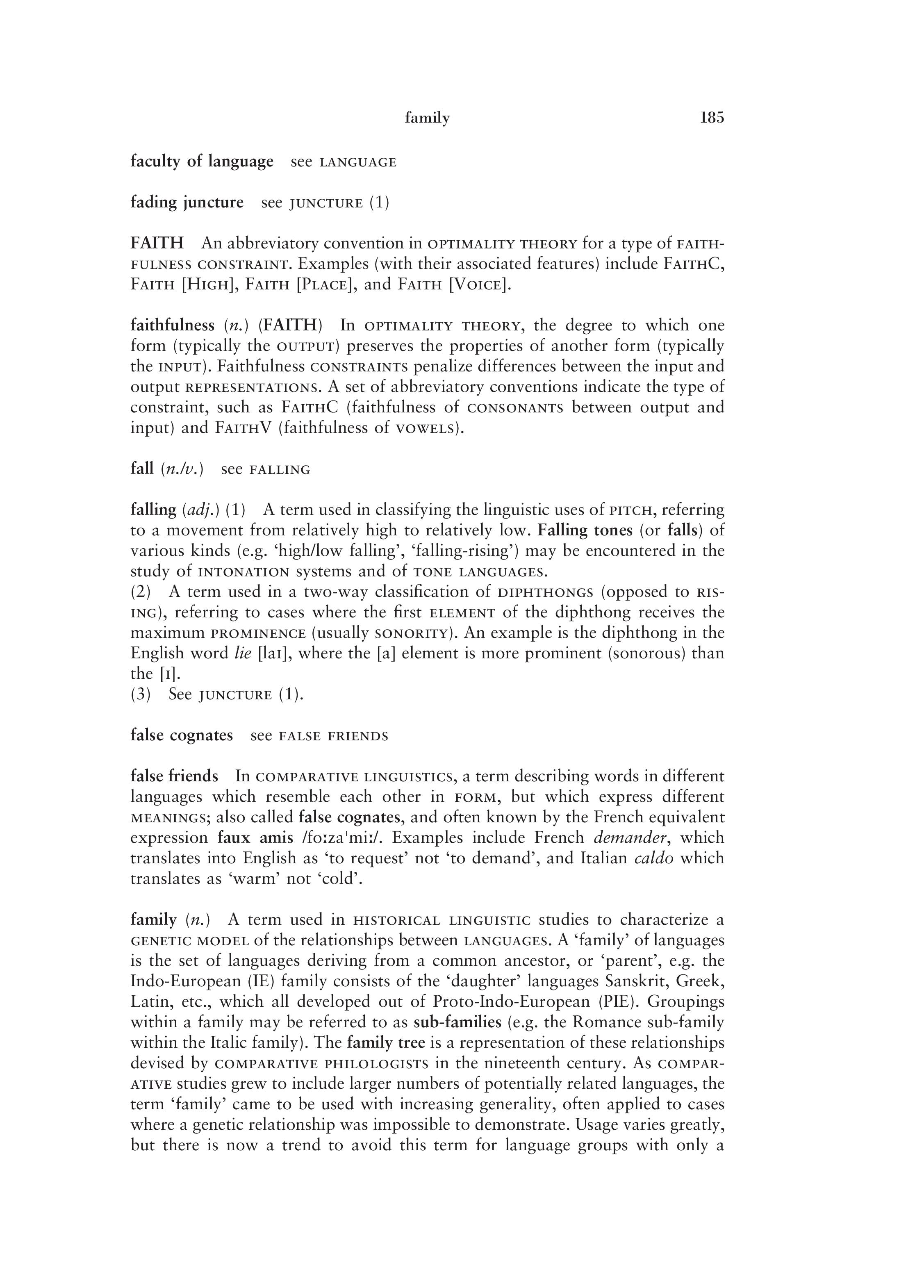Definition of Language Family
Source: A Dictionary of Linguistics and Phonetics
"family" n.
A term used in historical linguistic studies to characterize a genetic model of the relationships between languages. A ‘family’ of languages is the set of languages deriving from a common ancestor, or ‘parent’, e.g. the Indo-European (IE) family consists of the ‘daughter’ languages Sanskrit, Greek, Latin, etc., which all developed out of Proto-Indo-European (PIE). Groupings within a family may be referred to as sub-families (e.g. the Romance sub-family within the Italic family). The family tree is a representation of these relationships devised by comparative philologists in the nineteenth century. As comparative studies grew to include larger numbers of potentially related languages, the term ‘family’ came to be used with increasing generality, often applied to cases where a genetic relationship was impossible to demonstrate. Usage varies greatly, but there is now a trend to avoid this term for language groups with only a remote degree of relationship, or where a clear ancestor language is unknown. Phylum (plural phyla) has come to be widely used in such cases – with macrophylum available for still less definite groupings. For example, many scholars therefore now talk of the ‘Australian phylum’ (of Aboriginal languages), though in popular usage ‘family’ will still be heard. Proposed clusters of languages within phyla are variously called ‘groups’, ‘sub-groups’, or ‘branches’, with no fixed usage. ‘Stock’ is also found as an alternative to ‘family’.
Crystal, DLP, 185–186. [View as image] [Read on OMNIKA]
Page Image(s)


Citation
PsychLing Contributors. "Language Family." PsychLing, OMNIKA Foundation, 5 Aug. 2023, psylng.org/glossary/term/language-family. Accessed 14 Feb. 2026.
PsychLing (2023, August 5). Language Family. Retrieved from https://psylng.org/glossary/term/language-family
Bibliography
APA Contributors. "APA Dictionary of Psychology." Washington, DC: American Psychological Association. Accessed September 14, 2023. https://dictionary.apa.org. [Visit]
Crystal, David, ed. A Dictionary of Linguistics and Phonetics. 6ed. Malden, MA: Blackwell Publishing, 2011.
OMNIKA Foundation Contributors. "OMNIKA: Digital Mythology Library." Las Vegas, NV: OMNIKA Foundation. Created January 21, 2019. Accessed July 28, 2023. https://omnika.org. [Visit]
SIL International Contributors. "ISO 639-3 Registration Authority: International Standard for Language Codes." Dallas, TX: SIL International. Accessed July 28, 2023. https://iso639-3.sil.org. [Visit]
